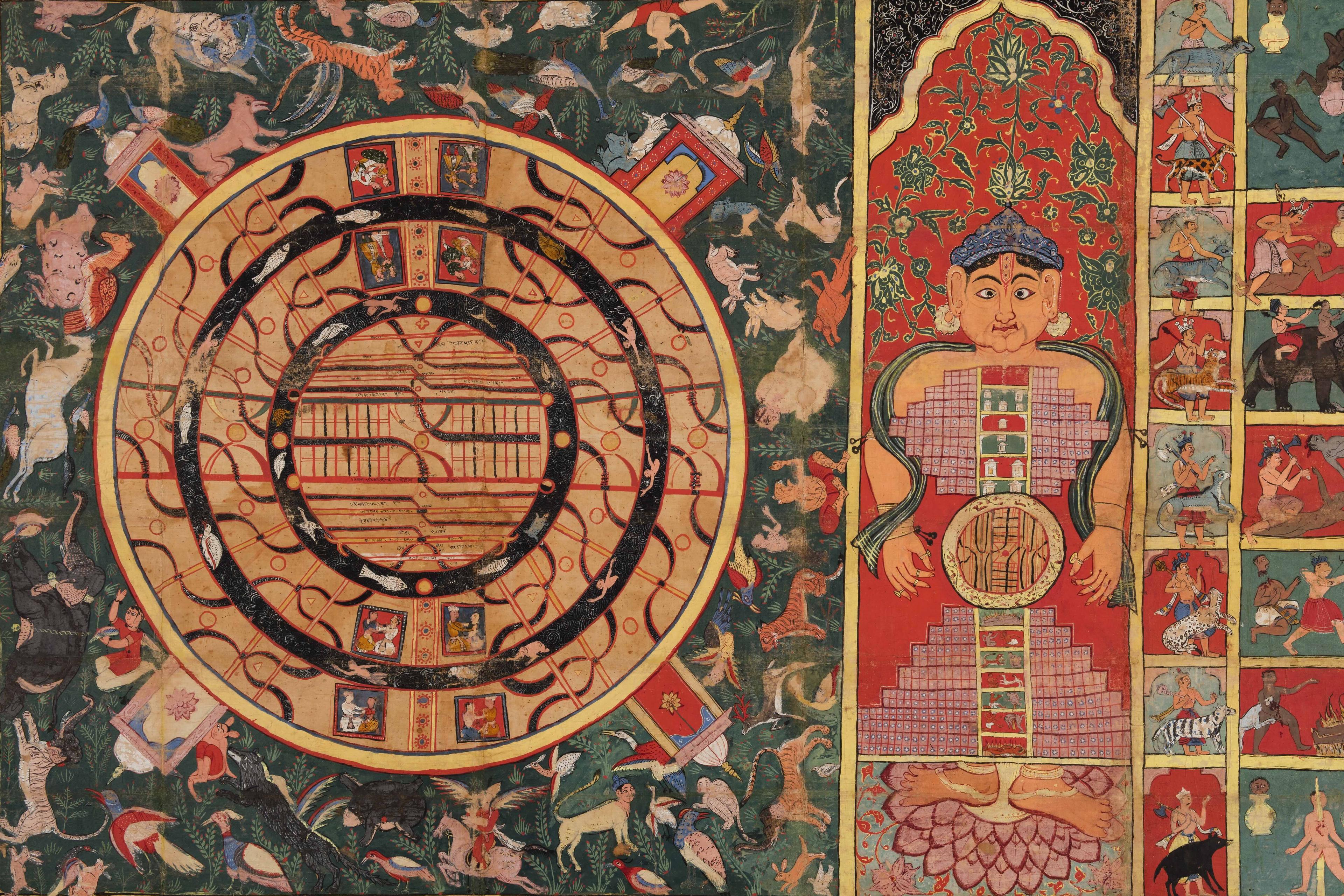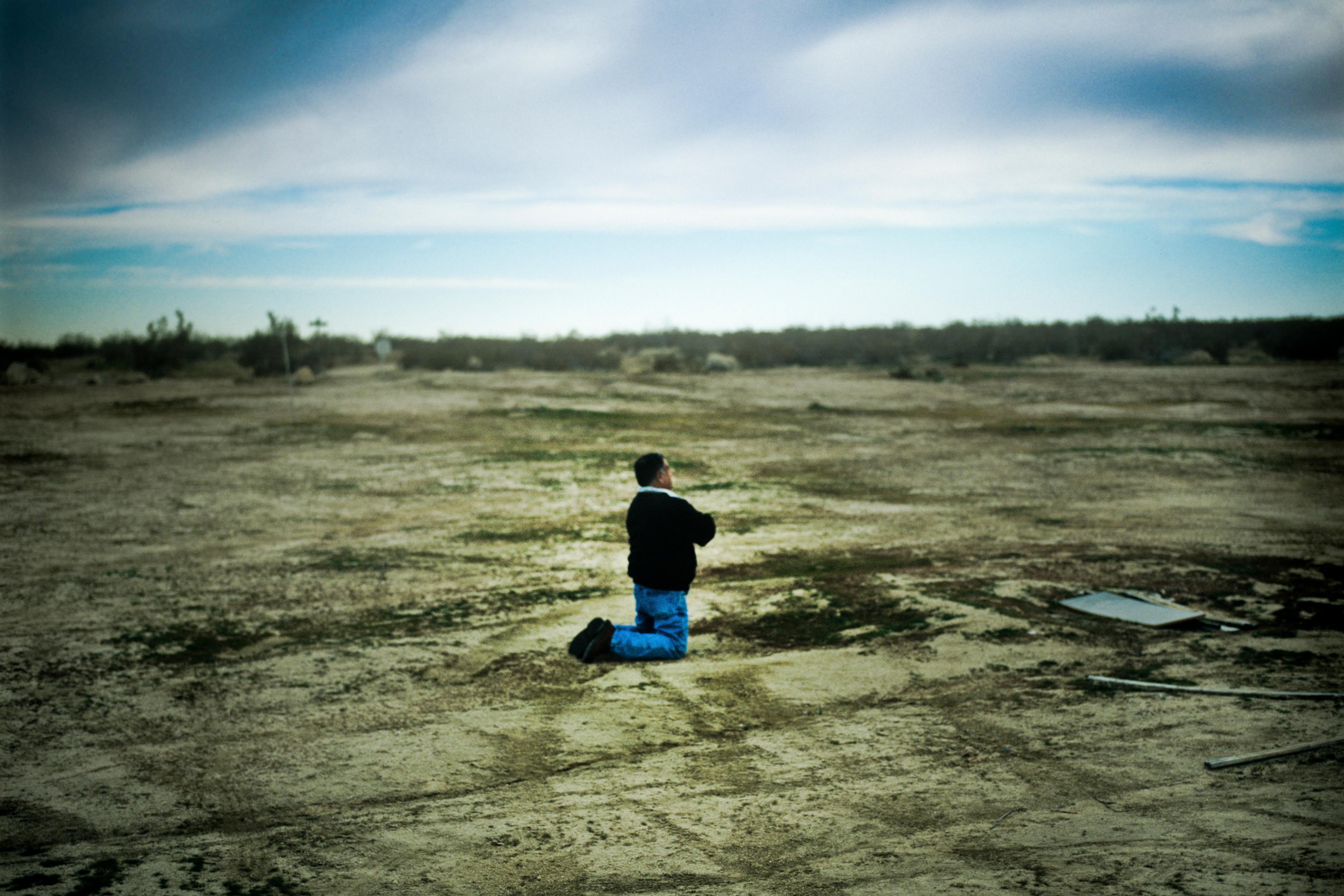What is the meaning of life?
During my early adult life, as an upstanding member of not only North American Society but the most secular version of it – scientific academia – I strenuously ignored questions like this one. Along with most of my peers, I pushed existential concerns aside, to be dealt with… eventually. I had picked up the message that the meaning of life is not something productive members of our society are supposed to think much about. Or, if we must, we should simply accept that our existence has no meaning – so stop worrying about it and get a job! (Or, find a hobby! Make friends! Raise kids!)
I went to grad school to get a PhD in psychological science, then became a psychology professor at a large Canadian university. I devoted much of my life to training graduate students, teaching undergrads, applying for grants, and publishing my research findings. I was granted tenure, the guarantee of a reasonably well-paid and prestigious job for life. And right around then, just as I faced the prospect of turning 40 with everything I’d worked my whole life toward checked off the to-do list, I realised something was missing.
Suddenly, I was unable to stop thinking about the meaninglessness of my existence. Religious belief, the most obvious source of meaning available to many people when those big ‘Why are we here?’ questions come up, was not an option. As a scientist, I had always abided by the dictates of materialism: the central scientific doctrine holding that everything that matters is measurable. Materialism is largely responsible for the uncountable scientific advances our culture has accumulated over the past several centuries, from smartphones to vaccines. At the same time, it has placed a clear-cut kibosh on the possibility of a supernatural deity running the show.
In fact, one of science’s main draws for me was its airtight logic and appeal to rationality. I had no interest in seeking a source of meaning that requires abandoning – or at least setting aside – the critical thinking that my scientific background had instilled deep within me. And yet, as I hit midlife, I realised that science’s hardcore materialism was devastating me.
The fact is, humans need to experience meaning in our lives. According to research by the psychologists Login George and Crystal Park, this meaning comes in three varieties. First, there’s the kind of meaning acquired from ‘coherence’, or our sense that what we experience makes sense, and that we can understand and predict what happens next; for example, that clouds in the sky mean rain is likely. (To see what it’s like to lack coherence, watch any David Lynch film.)
Second, there’s the meaning that comes from having purpose, or the sense that you’re doing something important with your life, be it building a career, marriage or family; honing a craft such as pottery or baking bread; or becoming a leader or otherwise valuable member of your community.
And finally, there’s the sense of meaning that comes from existential mattering: the belief that your life is significant in the grand scheme of things; that your existence actually matters to the universe.
People whose lives feel irrelevant to the universe are less likely to believe that their lives as a whole have meaning
Many secular Westerners manage to procure the first two kinds of meaning, as I had through my academic career. But that third form of meaning presents a real problem for those of us who don’t believe in God, but do believe in the evolutionary tenet that humans are nothing more than complex molecular machines shaped by our genes’ desire to replicate. In a recent, as-yet-unpublished study, my student and I found that the more strongly our research participants accepted the core facts of scientific materialism – for example, that the only reality is that which is physical and material – the less they felt as though their own lives matter to the universe.
Even more problematically, according to a study by Vlad Costin and Vivian Vignoles, existential mattering is not merely one of the three ingredients needed for a meaningful life, it’s the most important one. People whose lives feel coherent and purposeful but irrelevant to the universe are less likely to believe that their lives as a whole have meaning, compared with those who feel that their lives existentially matter, even if they lack coherence or purpose.
The scientific perspective I’d followed for most of my life says this is some tough luck: coherence and purpose are all we get in a world shaped by random chance and natural selection. We have no choice but to face the facts, accept that life has no intrinsic value, keep calm and carry on.
But recently I’ve come to question whether the science telling us that human lives don’t matter is really science at all. Instead, thanks to conversations with my friend and collaborator Ari Makridakis, I now recognise that this nihilistic message about life’s meaning comes not from science – the immense body of empirical data that has been amassed through the scientific method – but from scientism – the dogma, or set of beliefs, that has been built up over the past several centuries to surround the knowledge and methods that actually comprise science.
I realise that’s a bold claim, especially from a scientist. But most scientists I know accept the meaninglessness of the universe without pausing to ask where, exactly, this assumption comes from. To answer that question, we need to start with Sir Francis Bacon (1561-1626), known as the ‘father’ of modern science. Bacon didn’t develop the scientific method to address questions about the reality of anything nonmaterial, such as meaning (like virtually all Europeans of his time, Bacon believed unquestioningly that life mattered because God created it). No, Bacon made his agenda explicit: to predict, control and conquer nature.
To know that we belong, we must ask why we are here
Furthermore, Bacon’s aims of conquest were not restricted to nature, but extended to those humans he saw as equally untamed – the women whom he called ‘witches’. As attorney general of England, Bacon presided over hundreds of witchcraft trials, stoically enforcing the law as innocents were tortured and murdered before his eyes. For Bacon, these women were unnatural, and he developed the scientific method not only so that man could dominate the natural world, but also so that men could dominate the social one. The operative word, here, control, is different from the word I’ve always most readily associated with science: understand. To Bacon, understanding why nature’s patterns exist was unimportant; all that mattered was measuring those patterns accurately enough to predict and conquer them.
Over subsequent centuries the enormous predictive power delivered by science’s fixation on measurement and control led many scientists to view why questions as irrelevant. And yet, existential mattering requires asking precisely those questions. To know that we belong, we must ask why we are here. But in exchange for an infinitely accurate grasp of how nature’s patterns operate, we long ago agreed not to ask why those patterns exist. We now possess a level of control over our world that Bacon couldn’t have imagined, at the price of relinquishing any possibility of intrinsic meaning. Most scientists I know simply accept that there is no why to our existence.
It is ironic that our primary tool for understanding the universe comes from a man who used the drowning test to determine whether a woman should be burnt at the stake. This simple historical fact, if nothing else, has made me willing to question whether the reductionist form of empiricism that Bacon developed is the only viable means of finding truth.
To become aware of other options, we must first recognise that science is not merely the set of facts most of us assume it to be. Bacon’s science is also a worldview – the philosophical framework of scientism I mentioned earlier, which is built around those facts. Scientism insists on an extreme form of materialism which, for most of my life I took for granted as ultimate truth, but which has never been proven and is largely negated by our best scientific evidence about the nature of reality (to take just one example: Albert Einstein’s now-empirically supported principle of nonlocality indicates that electrons regularly behave in ways that are materially inexplicable). Acknowledging this fact allows us to ask: is there a way to drop scientism’s dogma while keeping scientific knowledge and using it to uncover real meaning in the universe? I believe that an answer can be found in systems theory, a scientific approach to understanding the connections within and among all organisms.
Developed in the 1970s by a group of thinkers including the anthropologist Gregory Bateson, systems theory argues that patterns are as important and real as things. According to Bateson, cells, storms, ecosystems and families – each of which is obviously different from each other in terms of its material components – function according to the same patterns and internal feedback loops. Each of these complex systems includes both material components (in the case of a cell, that’s the molecules it’s made of) and a nonmaterial organising pattern (for a cell, that’s its metabolism). From the perspective of scientism, the material components of these systems are real but their associated patterns are mere conceptual tools that we use to make sense of the real stuff, such as matter and energy. But there is no reason – beyond the assumptions required by materialism – to draw this distinction.
Systems theory suggests that science’s vision needs to be expanded to include patterns, and, through this expansion, I believe meaning can be reintroduced. Meaning is all about connection – to determine the meaning of an object we must ask what words, other objects, or symbols it is connected to. When we talk about existential meaning, we’re talking about our connection to the universe. If the patterns interconnecting every human, animal, plant and other material component of the natural world are as real as those things are, then my life (and yours) must matter, because we are integral parts of the world, and our connections to the mountains, sea and stars are the literal fabric that constitute the cosmos. Each of us may not be essential for the universe to operate, but our lives are nonetheless meaningful parts of it, in the same way that every cell is a meaningful part of my body, even while existing in a constant flux of growth, decay and rebirth.
Bacon’s scientism tried to disenchant our universe, but the ‘witches’ he destroyed were not entirely wrong
Adopting a systems-theory worldview requires letting go of the cultural narrative imposed by scientism – not an easy task, but one that, I believe, might change your life. Knowing that there are scientific reasons for my love of the ocean, or the awe I feel from a hike in the woods, allows me to see my connections with the natural world as every bit as real and meaningful as the connections I feel with my daughter and partner. And in the same way that my connections with them form a family system, my connections with the trees, sea and mountains ultimately form the system of the universe.
This understanding is very different from the one encouraged by materialism, yet just as scientifically accurate. Setting aside its validity, there are other good reasons to adopt systems theory. Bacon’s scientism tried to disenchant our universe, but the ‘witches’ he destroyed were not entirely wrong. The natural world is a place of wonder and moments of apparent magic, and we are not merely living in that world, we are an inextricable part of it.
Knowing this has allowed me to navigate the crisis of meaning I experienced almost a decade ago. I am no longer the existentially anxious, hardcore materialist I was when I got tenure. Now I see the possibility of real, legitimate meaning in the wonder and intimacy I feel in a forest, or when I look up at the stars outside my bedroom window. I know that what I’m experiencing in these moments is not the result of a story I’ve told myself, but rather a true communion with my biological origins and relatives. What I’m feeling is my presence within a larger system. And, as an integral part of that system, my life matters.








